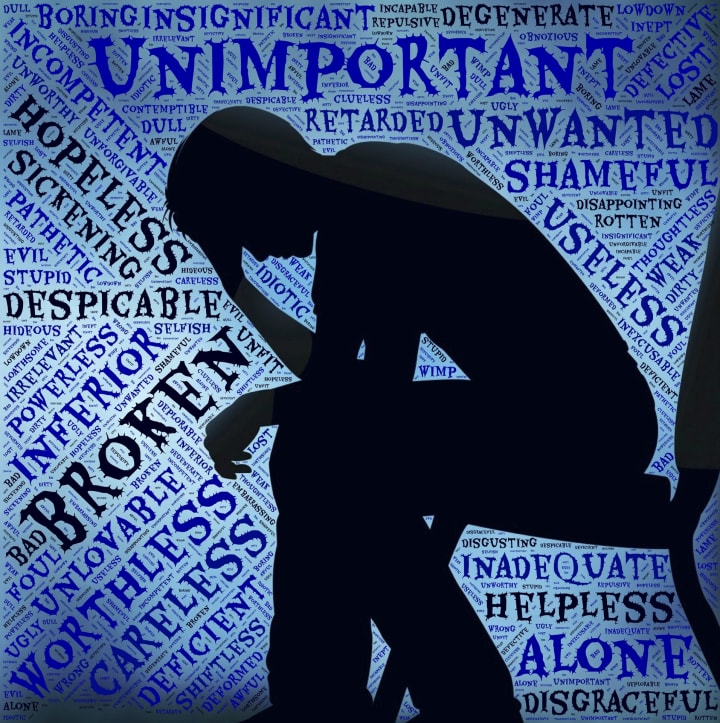My Experience of Mental Health Support in Schools
We still have a long way to go.

I recently read an article about what needs to be done in schools to make sure children are better equipped to manage their mental health. The article prompted me to write about my own experiences of mental health support in schools. The link to the article I read is below.
Whilst I still taught in secondary schools, I saw some of the measures talked about in the article either already in place or being implemented. Let me say here that I am 100 percent in support of these changes, but there’s more we need to do.
Working in a School Versus Being a Student
Similar to the author of the article above, I don’t remember mental health or illness being mentioned as part of our curriculum when I was at school.
There was a school counsellor, but words like depression, bipolar disorder, anxiety, PTSD, etc. were never mentioned in connection with going to see her. We were advised to visit her if we were feeling a bit worried about something.
While at school I learnt about depression because of personal ties, and even then I had only a dim idea of what it meant.
As a teacher, in all of the schools where I worked, pastoral teams did the lion’s share of looking after the mental wellbeing of students.
Teachers also played a role, especially tutors and heads of year/house. A lot of their job was referring issues to the right part of the pastoral team and then keeping a watchful eye for further developments that needed to be referred. In addition, tutors and heads of year would deliver lessons/assemblies to the students on mental health topics.
When I first started teaching, the mental health topics were embedded within other topics and by the time I left to be a tutor they had become topics in their own right.
On the Face of It
It sounds as if things are quite good within schools—they are definitely better than when I was that age. So why am I saying that we need to do more?
Individuals
In my experience, it is isolated individuals throughout a school who truly get mental health and who really champion the wellbeing of the students. They fight long and hard battles, sometimes (I’d even say often) against the ignorance of staff.
I’ve seen many teachers only referring things when they have to and a lot of ignorance leading to sanctions rather than support.
I’ve witnessed people agreeing to make referrals to CAMHS for a child, clearly recognising that they need help, whilst in the next breath calling them "crazy" or "attention seeking."
On the one hand that child was going to get help, but did I feel like they were getting proper support and understanding from the member of staff? Not at all.
Stigma

Photo by Pixabay.com
Students can be very judgemental of each other. Unfortunately teachers can too and in fact, at school, attitudes start with them.
Lots of teachers talk the talk, attend the training, but then somehow forget to apply it when it matters.
When students confided in me I would advise them about who they could go to for support. Too often they would tell me that they couldn’t speak to certain teachers, their tutors even, because of comments the teachers had made casting mental illnesses in a negative light.
It’s incredibly irresponsible of teachers to do this. The students in their care are forming their opinions about the world and themselves. How can these teachers expect students to believe that they can talk about their mental health openly if, after telling them this, in the next breath they make stigmatising comments?
I’ve often heard teachers say of struggling students, "Oh but they just want attention." I’ve challenged them on these comments but rarely been taken seriously. It’s upsetting because yes, these children probably do want attention, but because they are in pain and want help.
What’s the point in telling children that emotions are okay if they are also told not to seek attention? How can you ask for help without seeking someone’s attention? How can we expect developing children to understand from the start how best to go about getting someone’s attention?
Children aren’t likely to seek our guidance in getting help if their first clumsy attempts are met with harsh words and punishments. It’s up to the adults to remember that we aren’t born equipped with all the skills we need; we learn as we grow.
We need to set better examples as adults, both in how we speak about mental illness (and mental health) and how we react to people in difficulty.
Education about mental health is a great step forwards but it needs to be delivered with more empathy; we all know how it feels to be in some kind of distress.
Sharing

Photo by Kristina Flour on Unsplash
I found that one of the biggest barriers to being able to support students with their mental health was the secrecy and silence surrounding mental illness because of stigma.
When a child comes to a teacher and confides about any other issue, we find a story of a similar event in our lives to help them through. We show them that we understand, that they aren’t alone in their pain, and that there is a way through it.
I think about the number of times that students came to me struggling with their mental health and how I knew that what they needed to hear was that someone understood them. But because of the stigma and taboo (particularly because I was their teacher), I wasn’t able to help them feel less misunderstood.
I’m not talking about going into detail, saying what medication I take or how I cried for several hours straight one Saturday night at my lowest. I mean being able to say, "I have depression and anxiety, so I understand a little of what you’re going through and if you want to talk to me about how you feel, I won’t laugh, I won’t think you’re weird; I’ll listen."
About the Creator
Alicia Brunskill
Alicia writes about her experiences with anxiety and depression, teaching and learning languages, education and cats. She also shares her poetry and fiction from time to time.
Find her on Twitter: @aliciabrunskill






Comments
There are no comments for this story
Be the first to respond and start the conversation.